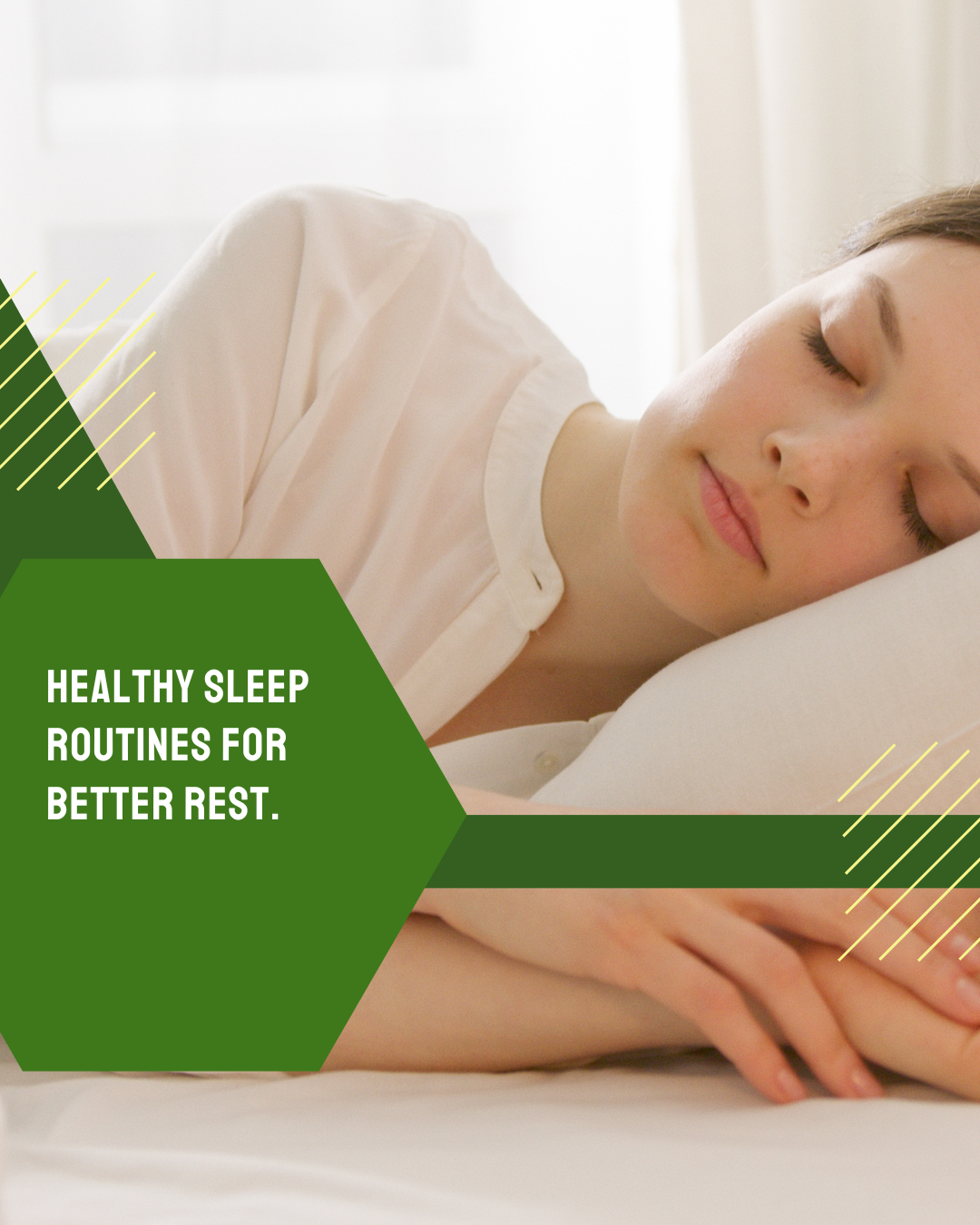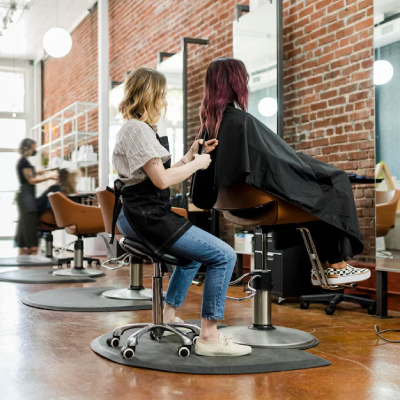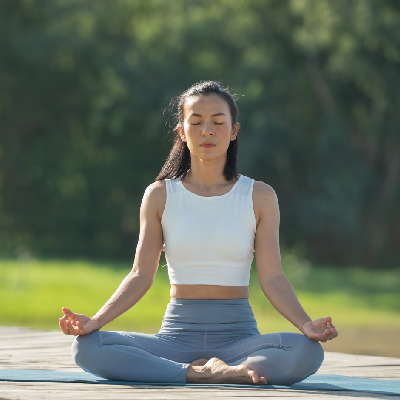1. The Science and Importance of Healthy Sleeping
Getting a good night’s sleep is incredibly important for your overall well-being. It impacts almost every part of your body, from your heart and immune system to your hormones, how well you think, and how you handle your emotions. If you don’t get enough sleep for a long time, it can cause a lot of problems, like:
- Trouble remembering things and focusing
- Feeling anxious or depressed
- A higher chance of getting heart problems, obesity, and type 2 diabetes
- A weaker immune system, so you get sick more easily.
- Aging faster and potentially living a shorter life
It’s not just about how *much* you sleep, but also *how well* you sleep and how consistent your sleep schedule is. Deep sleep is especially important because it helps your body repair muscles, lock in memories, and regulate hormones that control how hungry you feel and how stressed you are.
2. The Architecture of Sleep: Understanding Sleep Cycles
Each night, your body goes through a series of sleep stages that repeat themselves. These stages are divided into two main types:
NREM Sleep (Non-Rapid Eye Movement)
Stage 1: This is a light sleep, like a transition between being awake and falling asleep.
Stage 2: This is the start of real sleep. Your body temperature drops and so does your heart rate.
Stage 3: This is the deep, slow-wave sleep stage, and it’s crucial for your body to recover physically.
REM Sleep (Rapid Eye Movement)
When it happens: You usually enter this stage about 90 minutes after drifting off to sleep.
What happens: Your brain becomes more active, and this is when most of your dreaming occurs.
Why it’s important: REM sleep helps solidify memories and process your emotions.
Sleep Cycle: A complete sleep cycle typically takes 90 to 110 minutes and ideally happens 4 to 6 times each night. If this cycle gets interrupted, it can make you feel less rested, even if you technically got a lot of sleep.
3. Key Guidelines for Restful Sleep
Establishing a restful sleep pattern involves regularity, mindfulness, and deliberate actions.
Guideline 1: Establish a Regular Sleep Schedule
Retire for the night and arise at the same time daily, including weekends. Doing so aligns your circadian rhythm—your internal body clock—and enhances sleep quality progressively.
Guideline 2: Cultivate a Pre-Sleep Ritual
Engage in relaxing, low-stimulation activities an hour before bedtime:
- Read a book
- Take a warm bath
- Practice meditation or breathing exercises
- Write in a journal or reflect on things you’re grateful for
Guideline 3: Minimize Blue Light Exposure
Devices like smartphones, tablets, and TVs emit blue light that inhibits melatonin, the hormone responsible for sleep regulation. Cease screen usage at least 60 minutes before sleeping or activate blue-light filters.
Guideline 4: Steer Clear of Late-Day Caffeine and Alcohol
Caffeine can linger in your system for as long as 8 hours, and although alcohol might induce sleepiness, it disrupts the latter half of your sleep cycle.
Guideline 5: Avoid Staying in Bed Awake
If you find yourself still wide awake after 20 minutes of trying to sleep, it’s best to get out of bed and find a relaxing activity to do. resist the urge to constantly check the time—doing so can just make you more anxious and sleep even more elusive.
4. Creating Your Ideal Sleep Haven
Think of your bedroom as a peaceful retreat designed specifically for sleep. Here’s how to make it perfect:
Cool and Comfy:
- Ideally, your bedroom should be kept cool, somewhere between 60–67°F (15–19°C). As your body naturally cools down to prepare for sleep, a cooler room helps this process along.
Quiet and Dark
- Block out light: Use blackout curtains or an eye mask to keep things dark.
- Drown out noise: A white noise machine or earplugs can be a lifesaver in a noisy environment.
- Limit electronics: Turn off those glowing screens, or opt for a dim red night light if you need some light.
Luxurious Bedding
- Splurge on a really comfortable mattress and pillows that fit how you like to sleep. Keep your bedding fresh and clean by changing it regularly for maximum comfort and hygiene.
5. How Your Diet and Nutrition Play a Role in How Well You Sleep
Nutrients That Can Help You Sleep Better:
- Magnesium: This mineral aids in relaxation (you can find it in foods like leafy greens and almonds).
- Tryptophan: This one helps your body produce melatonin, a key sleep hormone (look for it in turkey and eggs).
- Melatonin: A natural hormone that’s present in tart cherries.
Good Habits for Better Sleep:
- Don’t eat big meals late at night.
- Try to limit sugary treats and processed foods.
- Sip on calming herbal teas like chamomile or valerian root.
- Eating too close to when you go to bed can cause indigestion and mess with your sleep.
6. The Link Between Physical Activity and Sleep
Regular exercise can lead to better sleep by easing stress and helping you drift off more quickly.
Here are some tips:
- Aim to exercise at least 3-4 times a week.
- Steer clear of intense workouts within 2 hours of hitting the hay.
- Doing some stretches or gentle yoga can help get your body ready for sleep.
Living a sedentary life (not being very active) can contribute to poor sleep and cause health issues down the road.
7. How Your Emotions and Mindset Can Affect Your Sleep
Feeling stressed, anxious, or emotionally out of balance can be major roadblocks to getting a good night’s rest.
Ways to Handle Feelings That Mess with Your Sleep:
- Therapy for sleep problems (CBT-I): This is a special kind of therapy that helps you change thoughts and behaviors that keep you awake.
- Mindfulness meditation:This means paying close attention to the present moment, which can help calm your mind.
- Gratitude journaling: Writing down things you’re thankful for can shift your focus to positive thoughts, promoting relaxation.
- Deep breathing or muscle relaxation: These techniques help your body unwind and release tension.
How your mental health and sleep are connected:
Think of your mental well-being and sleep as two sides of the same coin. When one improves, the other tends to get better too!
8. Figuring Out and Dealing with Sleep Issues:
If you’re still not sleeping well even after making changes to your routine, there might be an underlying sleep problem.
Common sleep problems include:
- Insomnia: This means having trouble falling asleep or staying asleep.
- Sleep Apnea: This is when your breathing stops and starts while you’re sleeping.
- Restless Legs Syndrome: You feel like you *have* to move your legs, which makes it hard to rest.
- Narcolepsy: This is when you suddenly fall asleep, even during the day.
If you suspect a sleep disorder, it’s best to **talk to a sleep expert**. They can figure out what’s going on and create a treatment plan just for you.
9. How devices affect your sleep:
We live in a world where we’re always connected. Smartphones, tablets, TVs, and laptops are everywhere. While they can be fun and useful, they can also really mess with your sleep.
Technology’s Impact on Sleep
- Blue Light Emission: Blue light emitted from screens reduces melatonin production, postponing sleep initiation
- Mental Alertness: Engaging with social media or work emails can maintain brain activity when it should be relaxing.
- Disrupted Rest: Device notifications, vibrations, and emitted light can break up your sleep.
Solutions:
- Establish a Tech-Free Period: Turn off electronic devices 60 to 90 minutes prior to bedtime.
- Activate blue light filters or use “night mode” settings.
- Keep mobile devices outside the bedroom or switch them to airplane mode.
- Substitute late-night screen usage with relaxing activities such as reading, writing in a journal, or practicing meditation.
10. Hitting the Road, Battling Jet Lag, and Keeping Up Good Sleep Habits
Hopping on planes frequently or even just taking one really long flight can seriously mess with your sleep schedule. Jet lag happens when your body’s internal clock is thrown off by a change in time zones.
Tips to Beat Jet Lag:
- Get a Head Start: Before you even leave, start adjusting your sleep schedule bit by bit to match the time zone of your destination a few days before your trip.
- Soak Up Some Sun:Getting some natural sunlight in the morning helps reset your body’s natural sleep-wake cycle.
- Stay Hydrated: Dehydration can actually make jet lag feel worse.
- Steer Clear of Alcohol and Caffeine: These can make it harder for your body to adjust and get a good night’s rest.
When you’re traveling, good sleep habits are important. Try to stick to your usual bedtime routine, use sleep masks and earplugs if needed, and take some time to relax and unwind, maybe with some mindfulness exercises.
11. Sleep: From Tiny Toddlers to Golden Years
The amount of sleep you need and your sleep patterns themselves change as you go through life. Knowing how these change as you age can help you adjust your sleep habits so you’re getting the best rest, no matter how old you are.
Infants and Children:
- Need the Most Shut-Eye: They need more sleep than anyone else
- Routines are critical for both the child’s development and parental well-being.
Teenagers:
- Their internal body clocks naturally shift later, making them want to stay up late and sleep in late.
- Early school start times often leave them constantly sleep-deprived.
Adults:
- They need 7 to 9 hours of good, uninterrupted sleep each night.
- Stress and work often mess with their sleep, causing irregular habits and even insomnia.
Older Adults:
- They tend to sleep more lightly and wake up more frequently during the night.
- Staying active during the day, getting some morning sun, and avoiding long naps can help them sleep better.
Tailoring your sleep habits to your current life stage can lead to better energy, clearer thinking, and better emotional well-being throughout your life.
12. 5 Common Questions About Healthy Sleep
Q1: How much sleep should I get each night?
A1: Most adults should aim for 7 to 9 hours of sleep. Depending on their age and daily activities, children, teens, and older adults might need more.
Q2: Are naps a good idea or not?
A2: Short naps of 15 to 30 minutes can be great for boosting alertness and improving your mood. Just avoid napping for too long or…
Okay, here are the paraphrased texts, keeping the same language as the original input and making them sound more human:
Q3: How can I get my sleep schedule back on track?
A3: The best way is to slowly shift your bedtime and wake-up time, adjusting by 15-30 minutes each day. Try to get some sunlight soon after you wake up, and steer clear of things like caffeine or screen time close to bedtime.
Q4: Is it possible to undo the effects of not getting enough sleep?
A4: A single good night’s sleep might help you feel more awake, but if you’ve been missing out on sleep for a while, it could take several days or even weeks to fully bounce back. It’s way easier to avoid building up a sleep deficit than to try and recover from one.
Q5: Should I consider using sleep aids or taking melatonin supplements?
A5: Taking them here and there might give you some relief, but relying on them long-term can mess with your body’s natural sleep-wake cycle. Before you start taking any supplements, it’s always a good idea to talk to your doctor.
Q6: Why do I wake up feeling tired even after a full night’s sleep?
A6: This can happen for a few reasons — like poor sleep quality, stress, inconsistent sleep routines, or conditions such as sleep apnea. Even if you sleep long enough, your body might not be getting the deep, restorative stages of sleep it needs.
Q7: Does what I eat before bed affect my sleep?
A7: Yes, it does. Heavy meals, caffeine, sugary snacks, and spicy foods can make it harder to fall asleep. It’s better to stick to something light and simple before bedtime, or avoid eating 2–3 hours before you plan to sleep.
Q8: Can exercise really help me sleep better?
A8: Absolutely. Regular exercise can improve sleep quality and help you fall asleep faster. Just try not to work out too close to bedtime, since intense activity can make you feel more awake.
Q9: Why do I keep waking up in the middle of the night?
A9: Night-time wake-ups can be triggered by stress, noise, temperature changes, late-night screen time, or even dehydration. Sometimes, it’s also due to your sleep environment not being comfortable enough.
Q10: How important is a bedtime routine for good sleep?
A10: A consistent bedtime routine helps your brain recognize that it’s time to wind down. Simple habits like dimming the lights, reading, or doing light stretches can make it much easier to fall asleep naturally.
13. Final Thoughts and Maintaining Healthy Sleep Habits
Think of healthy sleep as an ongoing process, not a quick fix. It’s about making choices that support your well-being over the long haul. From establishing consistent routines to creating a relaxing bedroom environment, managing stress, and being mindful of how your daily habits impact your sleep, each step you take can contribute to a more restful night’s sleep and a healthier you. With the demands of modern life becoming increasingly intense and digital…












